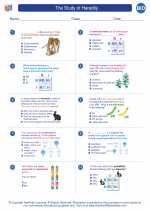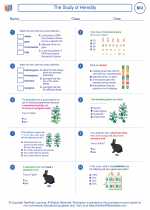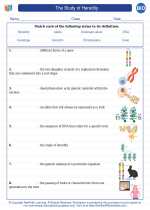Antibodies
Antibodies, also known as immunoglobulins, are Y-shaped proteins produced by the immune system in response to the presence of foreign substances called antigens. They are a critical component of the immune system's defense against pathogens such as viruses, bacteria, and parasites.
Structure of Antibodies
Antibodies are composed of four polypeptide chains - two heavy chains and two light chains - that are linked together to form a Y-shaped structure. Each antibody has two identical antigen-binding sites at the tips of the Y, allowing it to bind to specific antigens with high specificity.
Functions of Antibodies
Antibodies perform several important functions in the immune response:
- Neutralization: Antibodies can bind to viruses or toxins and neutralize their ability to infect cells or cause harm.
- Opsonization: Antibodies can coat pathogens, marking them for destruction by phagocytic cells such as macrophages and neutrophils.
- Activation of complement: Antibodies can trigger the complement system, a group of proteins that work together to destroy pathogens.
- Stimulating inflammation: Antibodies can promote inflammation at the site of infection, attracting immune cells to the area.
Types of Antibodies
There are five main classes of antibodies, or immunoglobulins, each with distinct functions and distribution in the body:
- Immunoglobulin G (IgG): The most abundant antibody in the blood and tissue fluids, providing long-term immunity against infections.
- Immunoglobulin M (IgM): The first antibody produced during an initial immune response, and often found as a pentamer (five units joined together).
- Immunoglobulin A (IgA): Found in mucous membranes, saliva, tears, and breast milk, providing localized immunity in the respiratory and gastrointestinal tracts.
- Immunoglobulin D (IgD): Found on the surface of B cells and involved in the activation of these cells.
- Immunoglobulin E (IgE): Associated with allergic reactions and defense against parasites.
Production of Antibodies
Antibodies are produced by white blood cells called B cells. When a B cell encounters an antigen that matches its specific receptor, it becomes activated and begins to proliferate, producing large amounts of antibodies that are released into the bloodstream to help eliminate the antigen.
Study Guide
When studying antibodies, it's important to understand their structure, functions, types, and production. Here are some key points to focus on:
- Describe the structure of an antibody and the significance of its Y-shaped structure.
- Explain the functions of antibodies in the immune response, including neutralization, opsonization, complement activation, and inflammation.
- Identify the five classes of antibodies and their respective roles in the body.
- Discuss the process of antibody production by B cells and the role of antigens in stimulating this production.
Additionally, it's helpful to explore clinical applications of antibodies, such as their use in immunotherapy, diagnostic tests, and vaccine development.
.◂Biology Worksheets and Study Guides High School. The Study of Heredity

 Worksheet/Answer key
Worksheet/Answer key
 Vocabulary/Answer key
Vocabulary/Answer key
 Vocabulary/Answer key
Vocabulary/Answer key
 Vocabulary/Answer key
Vocabulary/Answer key
